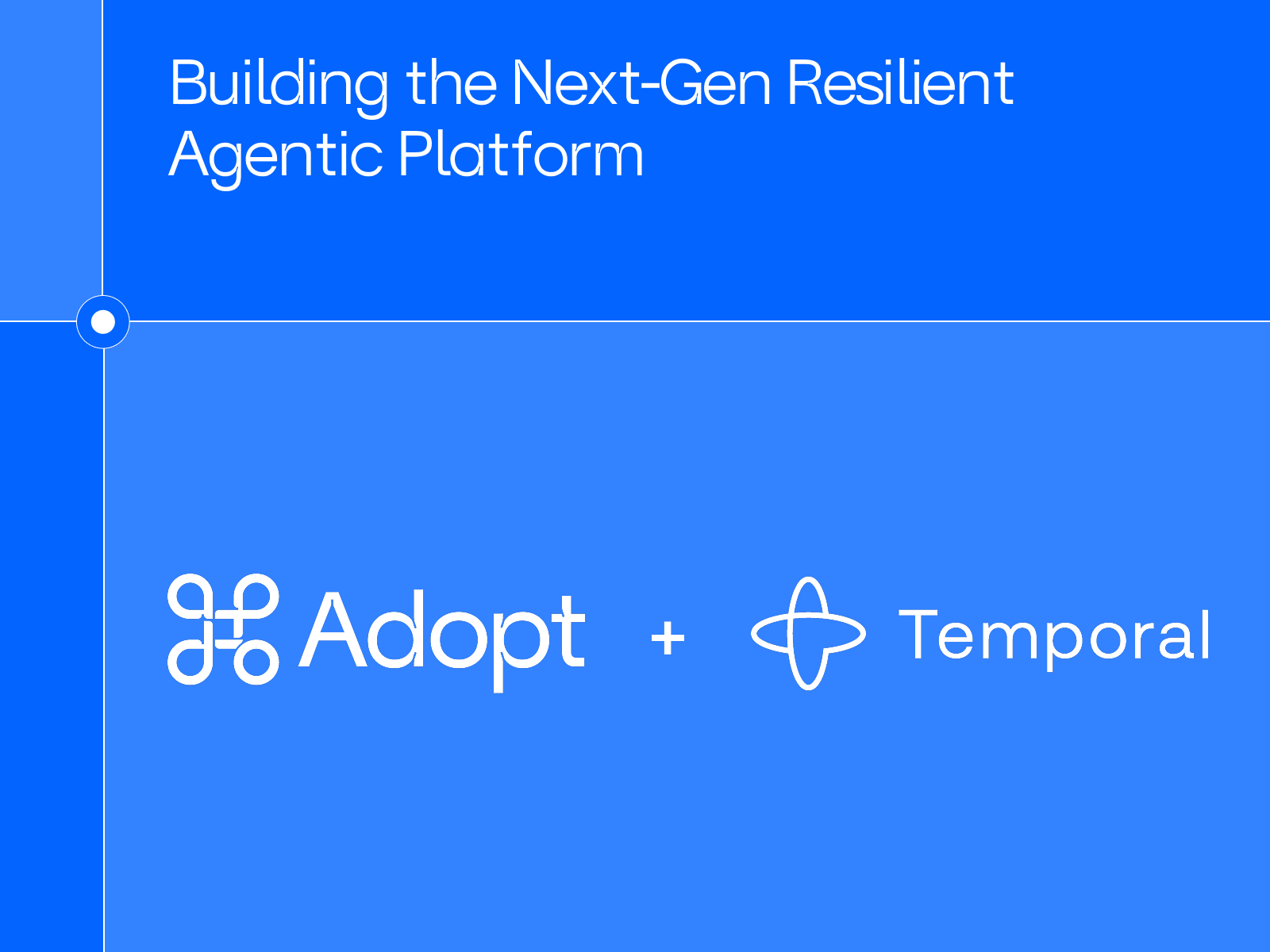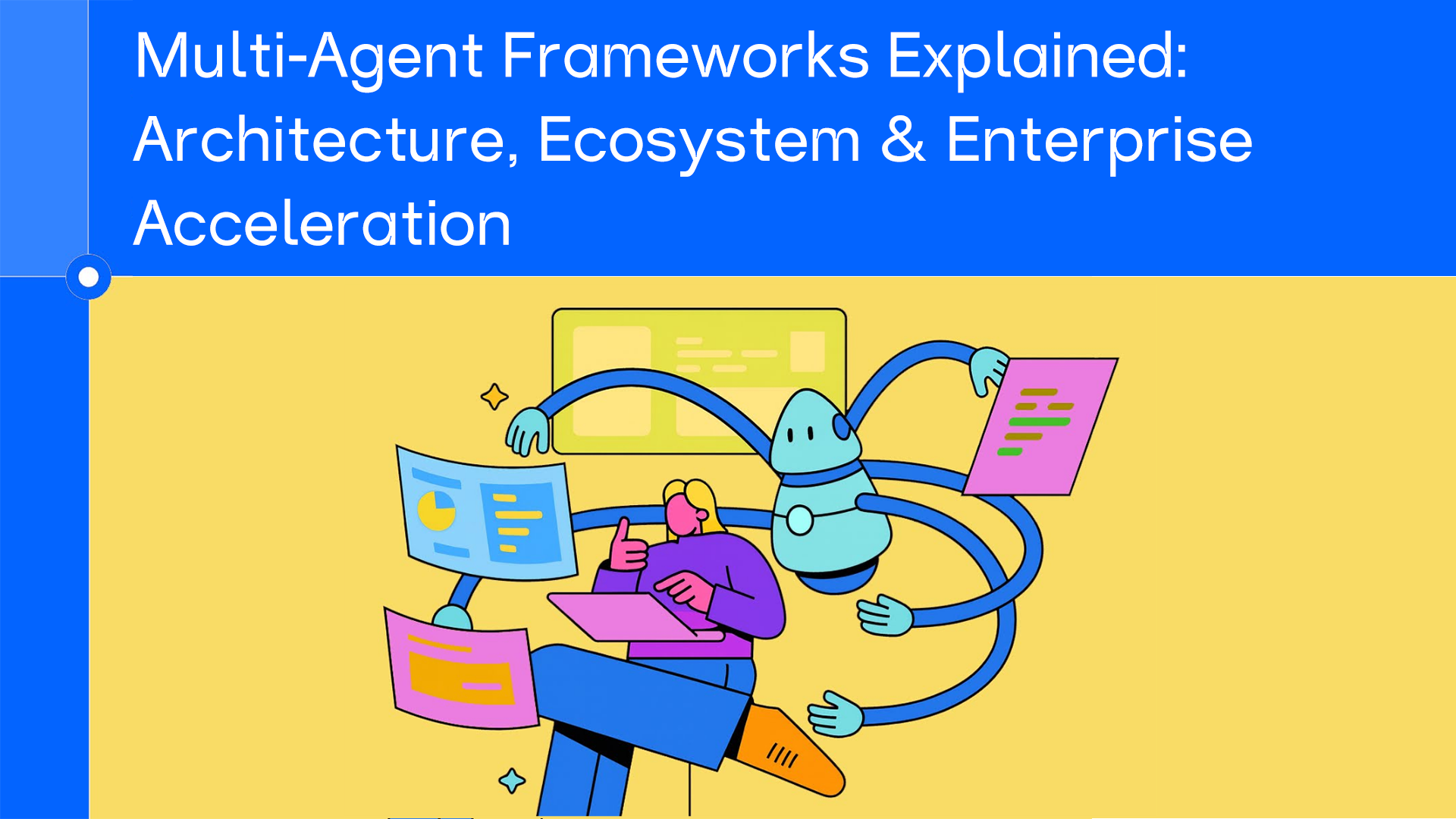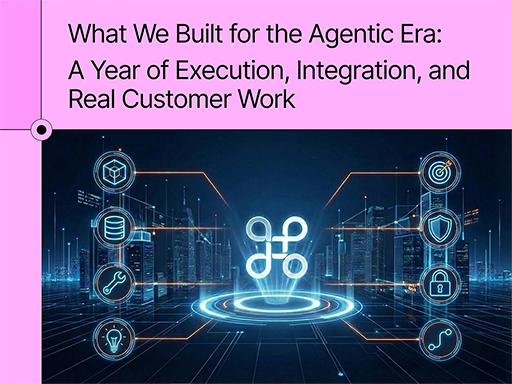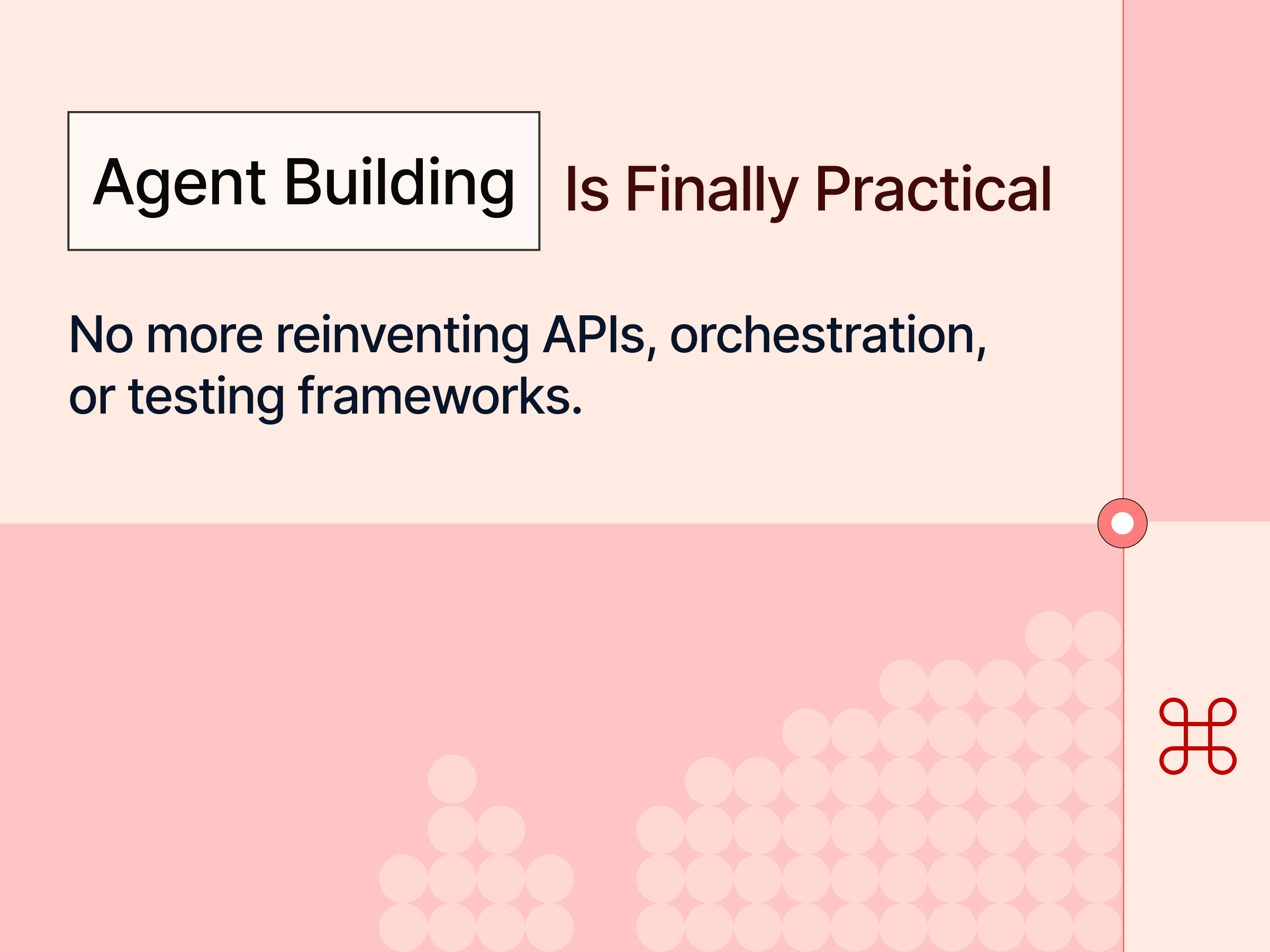At Adopt AI, we’re on a mission to empower agents to take real-world actions — confidently and reliably.



In a world of increasingly autonomous software, building resilient, traceable, and interactive systems is more important than ever. At Adopt AI, we’re on a mission to empower agents to take real-world actions — confidently and reliably.
Our core orchestration platform is built using Temporal, a durable execution engine for distributed systems. This blog explores how we’re using Temporal to construct a highly resilient, interactive, and parallelized agentic system — the kind that gives product teams, engineers, and users peace of mind.
💡 Why Temporal for Agentic Orchestration at Adopt AI?
Agentic platforms — especially those combining LLMs and tool execution — face three core challenges:
- Resilience — API failures, timeouts, retries, idempotency
- Traceability — knowing why an agent did something, step-by-step
- Interactivity — waiting for users or systems mid-flight
Temporal solves these with its core workflow model:
- Every agent run is a durable workflow, replayable and fault-tolerant
- It supports Signals for input at any point
- It enables Child Workflows for scalable parallel tasks
This design allows us to run critical automation safely — across Slack, Notion, CRMs, emails, and beyond.
⚙️ Parallelizing Agent Tasks with Child Workflows
Agentic tasks often require fan-out/fan-in behavior — say, querying multiple tools, fetching context from diverse systems, or executing independent LLM calls.
We use Temporal’s child workflows to model each of these branches independently:
summaries = []
for source in sources:
result = start_child_workflow("summarize_source_workflow", args=[source])
summaries.append(result)
# Wait for all child workflows to complete
summaries = [res.get_result() for res in summaries]Each child:
- Executes independently with its own retries and timeouts
- Returns data back to the parent
- Can be monitored and visualized separately
This modular approach improves reliability, speeds up processing, and simplifies failure handling — if one child fails, others continue unaffected.
📬 Using Signals for Event-Driven and Interactive Agents
Agents shouldn’t operate in a vacuum — they must pause and wait for human or system input. Temporal’s Signals let us inject external data into workflows at any time.
We use Signals for:
- Waiting for human confirmation from the UI
- Receiving webhook events or downstream system callbacks
- Connecting tool chains asynchronously
Example: an agent pauses to ask, “Should I send this email?” and waits for a UI signal:
# Wait for a signal from the user
approved = wait_for_signal("user_decision_signal")
if approved:
send_email()The workflow resumes only after receiving the signal, maintaining state across minutes, hours, or even days — without relying on polling or ad hoc persistence.
📊 Visualizing It All: Real Agent Event History
Here’s a real screenshot of an Adopt AI agent’s Temporal Event History:
.png)
Notice:
- Multiple parallel child workflows (
ActionDialogETLWorkflow) executing side by side - Repeated Signals (
user_input_signal) that pause/resume execution - Deterministic replayability — every activity is logged, inspectable, and debug-friendly
This level of transparency builds trust: engineers and PMs can audit every step an agent takes.
✅ How Adopt AI’s Architecture Builds Customer Confidence
Our customers — whether product managers, engineers, or operations leads — rely on Adopt AI to power workflows that must not fail silently, must not drop context, and must respond to real-time events. Here’s how our Temporal-powered architecture translates into concrete benefits:
🔁 Never Lose an Action — Durable Execution
Every action an agent takes — be it generating a report, creating a Jira ticket, or syncing a Slack thread — is stored as a durable, replayable workflow in Temporal.
- If a cloud outage or crash occurs, the action resumes automatically from the exact point it stopped.
📅 Customer Benefit: You can trust that every action is either completed or retried — no silent failures.
🧩 Human-in-the-Loop Workflows — Powered by Signals
Workflows often need approvals or context from humans. With Temporal’s Signals, Adopt AI lets workflows pause, await user input, and resume seamlessly.
- A user edits a message before sending? ✅ The agent waits.
- A team delays a task to post-lunch? ✅ The agent doesn’t time out.
📅 Customer Benefit: Your team stays in control — agents adapt to real-world delays, users, and reviews.
⚙️ Parallelism Without Chaos — Child Workflows
Need to query 10 systems or tools at once? We run these as parallel child workflows, each isolated and observable.
- Failures in one child don’t break the rest
- Retry logic is isolated per source
- Debugging one branch doesn’t interfere with the others
📅 Customer Benefit: Faster responses, better reliability, easier troubleshooting.
🔍 Complete Audit Trails — Full Event History
Every agent run is recorded in Temporal’s Event History.
- You see what happened, when, and why
- No guesswork or blind debugging
- You can replay past runs or test “what-if” changes with deterministic guarantees
📅 Customer Benefit: Trust and compliance — you know exactly what an agent did, down to the second.
🔐 Real-World Confidence. Not Just Automation.
While many AI platforms promise “smart agents,” Adopt AI delivers accountable, transparent, and controllable agents. Our users don’t just “trigger automation” — they run resilient agentic operations with full visibility and trust, backed by Temporal’s production-grade workflow engine.
🌟 Final Thoughts
Adopt AI’s use of Temporal isn’t just a technical win — it’s a product choice designed to build confidence. Whether you’re scaling internal automation or building customer-facing AI copilots, our system ensures:
- Every step is reliable
- Every decision is auditable
- Every action is recoverable
If you’re building the next generation of intelligent, action-taking systems — or just want your ops stack to sleep better at night — let’s talk.
Browse Similar Articles
Accelerate Your Agent Roadmap
Adopt gives you the complete infrastructure layer to build, test, deploy and monitor your app’s agents — all in one platform.




.svg)
.svg)










